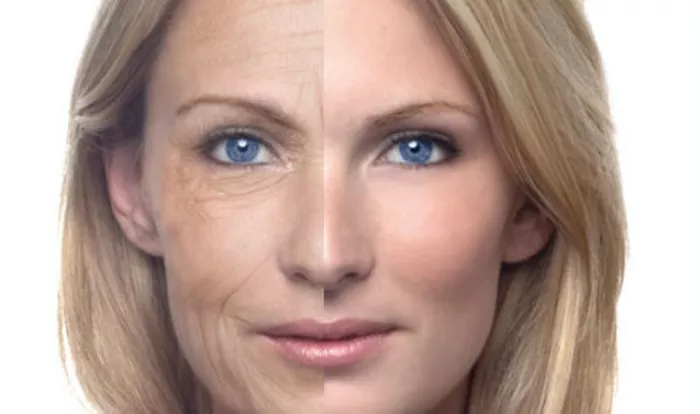Olive oil has long been celebrated for its numerous health benefits and culinary uses. In recent years, it has gained popularity as a potential skincare ingredient, particularly for reducing wrinkles and promoting a more youthful complexion. In this article, we will delve into the topic of olive oil and its impact on wrinkles, examining the benefits it may offer and the limitations to consider.
Understanding Wrinkles and Skin Aging
Wrinkles are a natural part of the aging process, resulting from the gradual loss of collagen and elastin in the skin. Collagen provides structural support, while elastin allows the skin to retain its elasticity. As these components diminish with age, the skin becomes less firm and resilient, leading to the formation of wrinkles and fine lines.
External factors such as sun exposure, pollution, smoking, and poor skincare habits can accelerate the aging process and contribute to the development of wrinkles. Many individuals seek ways to combat wrinkles and promote a more youthful appearance.
The Benefits of Olive Oil for the Skin
Olive oil is rich in antioxidants, vitamins, and fatty acids that are believed to offer potential benefits for the skin. Here are some ways in which olive oil may positively impact the skin and potentially help reduce wrinkles:
Antioxidant Protection
Olive oil contains polyphenols, which are powerful antioxidants that help protect the skin from free radicals. Free radicals are unstable molecules that can damage cells and contribute to premature aging. The antioxidants in olive oil may help neutralize free radicals, reducing oxidative stress and its impact on the skin.
Moisturization
Olive oil is a natural emollient, meaning it helps lock in moisture and keeps the skin hydrated. Dry skin is more prone to developing wrinkles, as it lacks the necessary moisture to maintain its elasticity. Regular application of olive oil may help improve skin hydration and prevent the formation of wrinkles caused by dryness.
Vitamin E Content
Olive oil is a rich source of vitamin E, a potent antioxidant known for its ability to promote skin health. Vitamin E helps protect against damage caused by UV radiation and other environmental stressors. It also assists in repairing and regenerating skin cells, potentially contributing to the reduction of wrinkles and fine lines.
Anti-Inflammatory Properties
Olive oil contains compounds with anti-inflammatory properties, such as oleocanthal. Chronic inflammation can accelerate skin aging and contribute to the breakdown of collagen and elastin. The anti-inflammatory effects of olive oil may help reduce inflammation in the skin, thereby potentially slowing down the formation of wrinkles.
Enhanced Absorption of Nutrients
Olive oil can act as a carrier oil, facilitating the absorption of other beneficial ingredients. When combined with other skincare products, olive oil may help enhance the delivery and effectiveness of these ingredients, potentially promoting healthier, more youthful-looking skin.
Limitations and Considerations
While olive oil offers potential benefits for the skin, it’s important to consider its limitations and use it appropriately. Here are some factors to keep in mind:
Comedogenicity: Olive oil has a moderate comedogenic rating, which means it has the potential to clog pores and contribute to the development of acne or breakouts, especially for individuals with oily or acne-prone skin. If you have oily or acne-prone skin, it’s advisable to perform a patch test before using olive oil on your face and monitor your skin’s response.
Individual Sensitivity: Some individuals may be sensitive or allergic to olive oil. It’s essential to be mindful of any adverse reactions, such as redness, itching, or irritation, when using olive oil on the skin. If you experience any discomfort, discontinue use and consult a dermatologist.
Quality and Purity: The quality and purity of the olive oil you choose can impact its potential benefits for the skin. Opt for extra virgin olive oil, as it is less processed and retains more of its natural beneficial compounds. Look for reputable brands that adhere to high-quality standards.
Supplementing Rather than Replacing: While olive oil can be incorporated into your skincare routine, it should not replace essential skincare practices, such as using a broad-spectrum sunscreen, cleansing, and moisturizing regularly. It can be used as a complementary component to support overall skin health.
Incorporating Olive Oil into Your Skincare Routine
If you decide to incorporate olive oil into your skincare routine, here are some tips for optimal use:
Choose High-Quality Olive Oil: Look for extra virgin olive oil from reputable sources to ensure quality and purity.
Perform a Patch Test: Before applying olive oil to your face, perform a patch test on a small area of your skin to check for any adverse reactions or sensitivity.
Use Sparingly: A little goes a long way with olive oil. Use a small amount and gently massage it onto clean, dry skin. Avoid applying too much to prevent a greasy residue.
Consider Mixing with Other Ingredients: You can mix olive oil with other skincare ingredients, such as aloe vera gel or essential oils, to create customized blends that cater to your specific skincare needs.
Avoid Direct Sunlight: As with any oil-based product, it’s advisable to avoid prolonged sun exposure after applying olive oil to the skin. This can minimize the risk of sensitivity or photochemical reactions.
Conclusion
While olive oil offers potential benefits for the skin, including moisturization, antioxidant protection, and anti-inflammatory properties, its effectiveness in reducing wrinkles may vary among individuals. Incorporating olive oil into your skincare routine can complement other skincare practices and contribute to healthier, more youthful-looking skin. However, it’s important to be mindful of your skin type, perform patch tests, and use olive oil sparingly to avoid any potential adverse reactions or excessive oiliness. Embrace a holistic approach to skincare that includes a balanced diet, proper hydration, sun protection, and consistent skincare practices to promote overall skin health and minimize the appearance of wrinkles.


